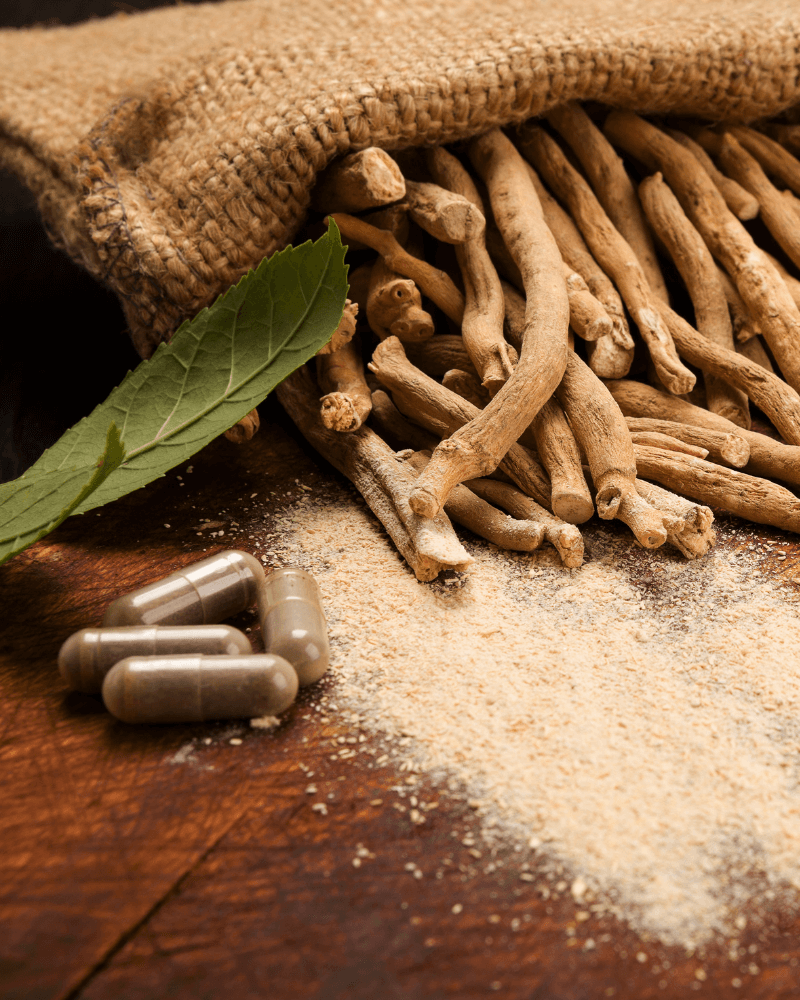What is ashwagandha?
Ashwagandha, scientifically known as Withania somnifera, is a plant that has been used in traditional Ayurvedic medicine for over 3,000 years. It is often referred to as "Indian ginseng" or "sleeping berry" and is one of the so-called adaptogens - plant substances that are said to help the body cope better with stress. The most important active ingredients in ashwagandha are withanolides, a group of natural compounds that are mainly found in the root of the plant and are known for their calming and anti-inflammatory effects. Originally from the arid regions of India and North Africa, ashwagandha is now available worldwide as a dietary supplement in the form of capsules, powders and teas. The plant is used for a variety of purposes, including promoting mental and physical well-being, supporting the immune system and improving sleep quality. Ashwagandha has become particularly popular in the modern health and wellness scene as a natural means of reducing stress and increasing energy.
Ashwagandha effect
Ashwagandha, also known as "Indian ginseng", is a traditional medicinal plant from Ayurvedic medicine. Its calming effect has been used for centuries to strengthen the body and mind and relieve stress. The active ingredients contained in the root, in particular the so-called withanolides, act on the central nervous system and can lower cortisol levels in the body, which reduces stress levels. Ashwagandha also strengthens the immune system and promotes general well-being, which can be particularly helpful in hectic times. More and more scientific studies are supporting these traditional findings by confirming the positive effect of ashwagandha on stress, anxiety and sleep quality. Anyone suffering from stress or wanting to sleep better could find natural support from ashwagandha.


Ashwagandha side effects
Although ashwagandha is generally considered to be well tolerated, certain people may experience mild side effects. These often include gastrointestinal complaints such as nausea, diarrhea or a slightly uncomfortable feeling in the stomach. In some cases, ashwagandha can also lead to slight drowsiness, especially when taken in higher doses. Therefore, when taking ashwagandha, you should always pay attention to the dosage and approach it slowly in order to check your individual tolerance. Pregnant and breastfeeding women are generally advised not to take ashwagandha, as the active ingredients could also be transferred to the unborn child or infant. If you are unsure or are taking other medication, it is advisable to consult a doctor beforehand.
Ashwagandha dosage: How much is ideal?
The optimal dosage of ashwagandha depends heavily on the individual's goal and state of health. It is generally recommended to take between 300 and 500 mg daily if general relaxation and stress relief are the aim. However, the dosage may vary for certain complaints, such as sleep problems or physical exertion. Beginners should first try a low dosage and slowly increase it if necessary if well tolerated. However, if the dose is too high, ashwagandha can lead to drowsiness or slight dizziness. It is therefore helpful to adjust the intake slowly and, if necessary, seek advice from a doctor or alternative practitioner to determine the best and safest amount.
Ashwagandha powder or capsules: Which form is better?
Whether ashwagandha is taken as a powder or in capsule form often depends on personal preference. Capsules offer the advantage of a precise dosage and are easy to use - ideal for those on the go or for anyone who wants to avoid the bitter taste of the powder. The powder, on the other hand, is more versatile and can be mixed into smoothies, yogurts or even teas, making it easy to integrate into everyday life. The powder is also absorbed more quickly by the body, which can enable a faster onset of action. Both forms have their advantages and disadvantages, which is why it is ultimately a question of individual needs and the desired purpose.
FAQs
Ashwagandha has a slightly bitter and earthy taste, which is unfamiliar to many. It is therefore often taken in capsules or mixed with other ingredients such as honey or in smoothies to soften the taste.
Yes, ashwagandha is often used for its calming effects and can be helpful for anxiety. Studies suggest that it can lower cortisol levels and thus support the body in stressful situations. However, it should not be taken without consulting a doctor if you have been diagnosed with an anxiety disorder.
The effect of ashwagandha can vary from person to person. While some people notice positive effects after a few days, for others it takes several weeks of regular intake to feel a significant effect. Continuous intake for at least four to six weeks is often recommended.
Yes, ashwagandha is considered safe and can be taken long-term, especially at low to medium dosages. However, it is advisable to take occasional breaks when taking it for longer periods to avoid habituation. Consultation with a doctor or alternative practitioner is advisable for long-term use.
Yes, ashwagandha is a plant-based product and is therefore suitable for both vegetarians and vegans. However, capsules should be checked, as these can sometimes consist of animal gelatine. However, there are also vegan capsule variants on the market.





